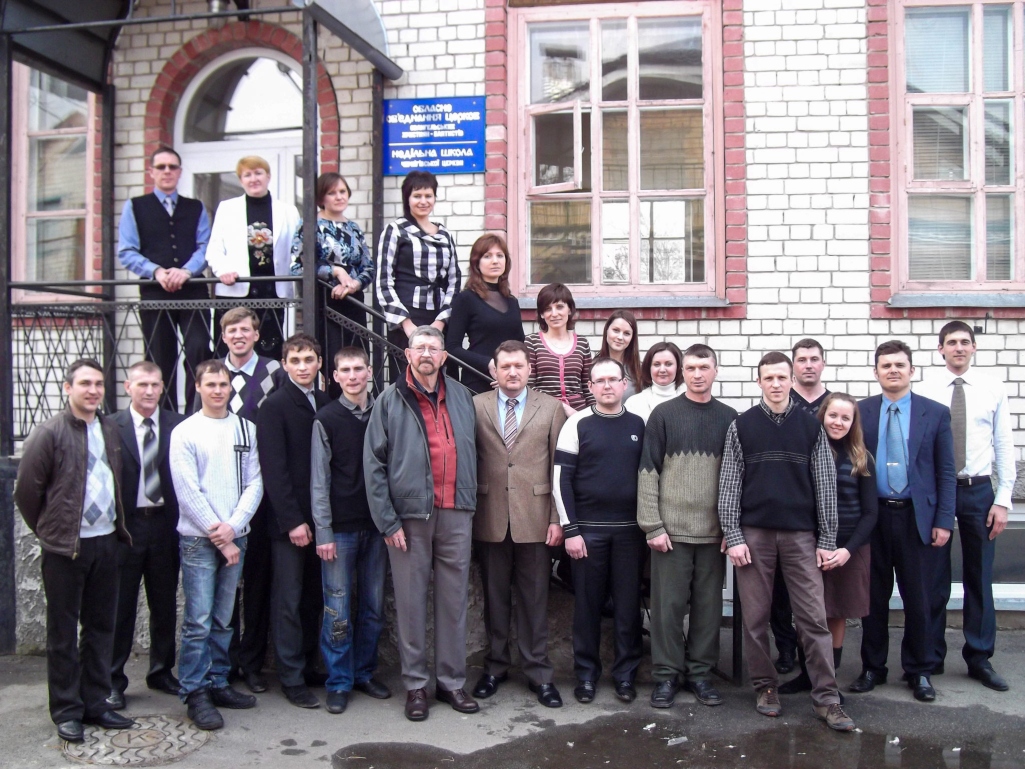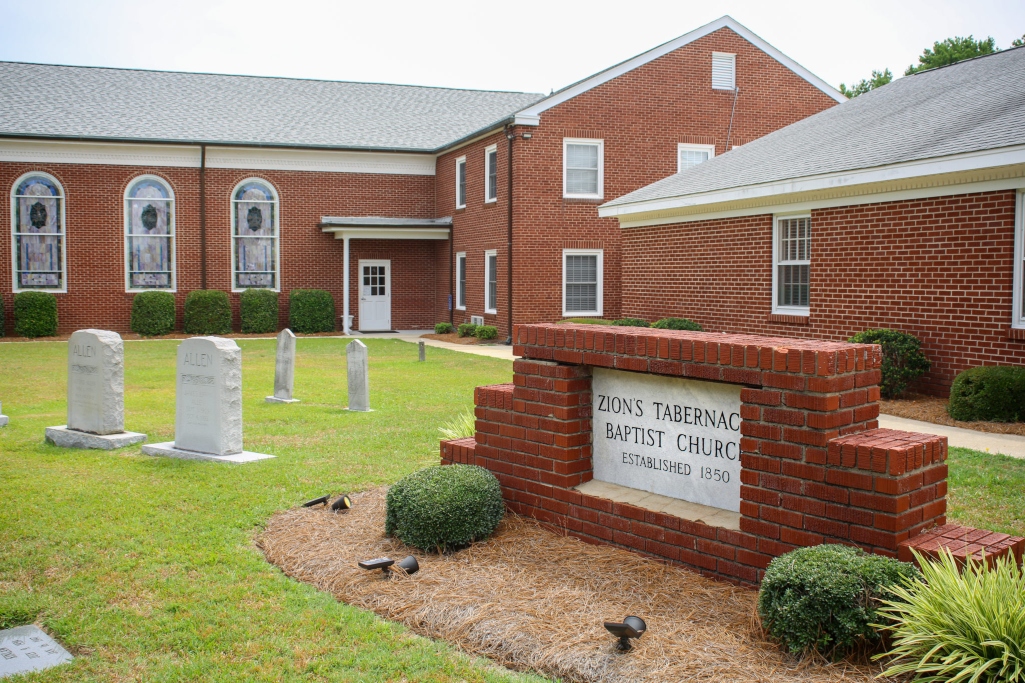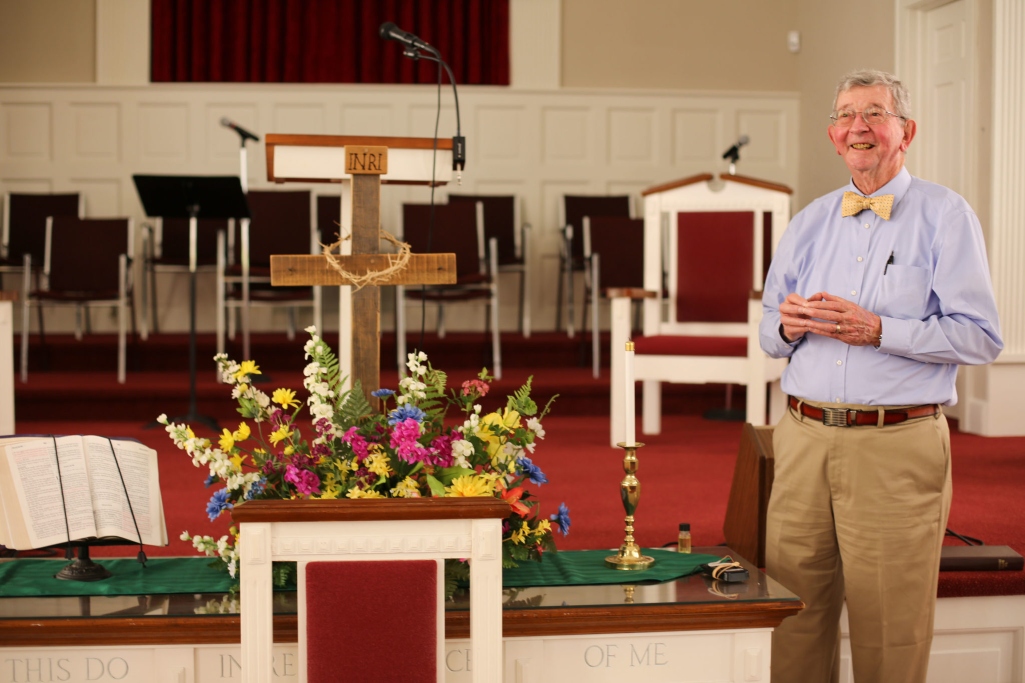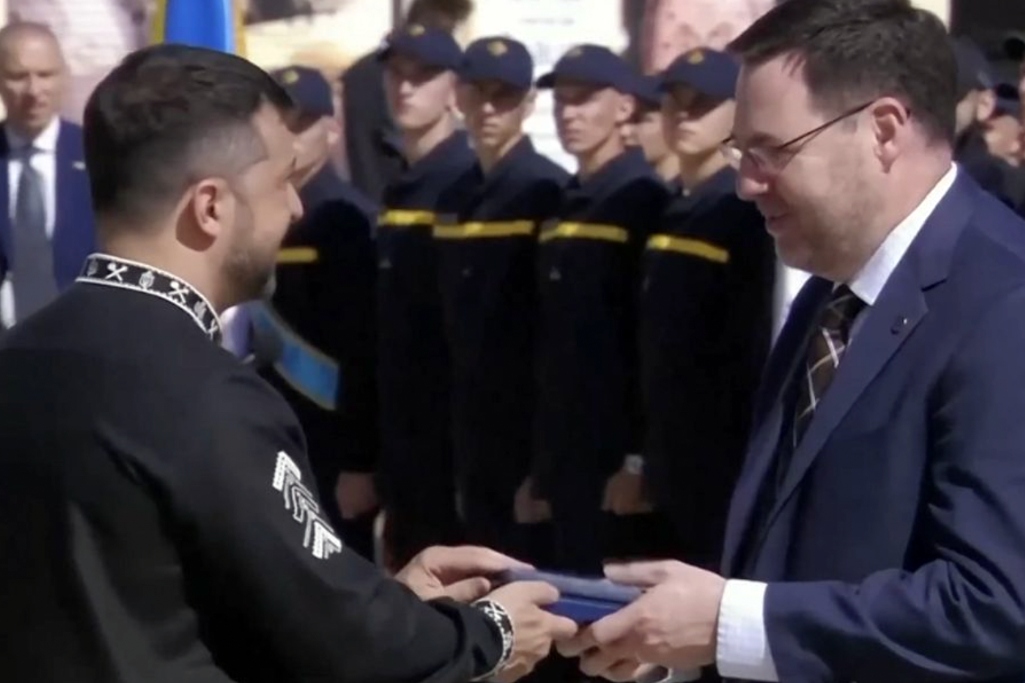
North Carolina pastor Bob Jordan and Victor Vasilenko, front center, director of Chernihiv Regional Bible College, pose with one of their Bible college classes. “We know that most of our students can’t afford to go to seminary and so we give them as much preparation for full-time gospel ministry as possible,” Jordan noted.
A small Baptist congregation in rural North Carolina isn’t where you would expect to find a pastor deeply connected to the embattled people of Ukraine. But that’s precisely the case for Bob Jordan, pastor of Zion’s Tabernacle Baptist Church in Lumberton.
An energetic 77-year-old preacher, Jordan will mark 50 years in pastoral ministry this year. Over the past 20, a key part of his ministry has involved numerous trips to northern Ukraine to teach at Chernihiv Regional Bible College. In the process, he has fallen in love with the Ukrainian people and their culture.
Chernihiv, less than 60 miles from the Russian border, was among the first cities attacked by Russian troops during the initial invasion in February. Ukrainian soldiers regained control of the city after a month of fighting, but not before hundreds of civilians were killed and more than half the city’s population fled.
While the Bible college’s host church, Bethania Baptist, has escaped any structural damage so far, much of the city center has been severely damaged or destroyed by Russian missiles. And like many of their fellow citizens, students and church members have suffered physical and emotional trauma amid the ongoing war.
With intermittent shelling continuing in the region, residents have been slow to return to the beleaguered city. Demolished gardens and farms are expected to hasten a looming food crisis.
Chernihiv feels ‘like home’
Halfway around the world, Jordan’s heart aches for the many friends he has made over the past two decades. At the top of his list is Victor Vasilenko, pastor of Bethania Baptist Church, and his family. Vasilenko also is director of the Bible college.
From his first trip to Chernihiv in 2002, Jordan has stayed in the Vasilenkos’ modest apartment. The couple’s two daughters, now adults, have become like adopted grandchildren.
“I have two families, my family here, my family there,” Jordan reflected. “I love the people. I love the city. It’s like home.”
Describing pre-war Chernihiv as “idyllic” with beautiful parks, ornate architecture and landscaped boulevards, he lamented, “It’s an age that they may have lost now.”
Recalling his first visit to Chernihiv, Jordan said he thought he would be teaching two-hour seminars to pastors and wives. Instead, he was asked to provide 22 hours of instruction plus a final exam for a class in the new Bible college. He scrambled to do so, adding simply, “We survived!”
Since that initial experience, he has taught numerous classes on biblical geography, biblical counseling, marriage and family, church administration and evangelism, as well as preaching and teaching in local churches.
Over the years he also has taught during mission trips to Mexico, Panama and Trinidad.
“I truly believe that when you train the indigenous population, they can go where we can’t go,” Jordan said. “They speak the language we can’t speak. They can go without all the fineries that we have come to expect and they can get it done.”
From pastor to servant
While at home in North Carolina, “I am Bob Jordan, pastor at Zion’s Tabernacle Baptist Church,” he noted. “When I get off of that plane and put my foot on the ground, I’m Bob Jordan, servant to the ministry in Ukraine.
“As I tell Victor every time he says, ‘Where do you want to go and what do you want to do?’ I say, ‘I don’t care. Where do you want me to go? Where do you want me to preach? Where do you want me to teach?’
“We don’t pretend to be a seminary but we are preparatory,” Jordan explained. “We know that most of our students can’t afford to go to seminary, and so we give them as much preparation for full-time gospel ministry as possible.”


The Baptist Paper photos by Pam Henderson Left, historic Zion’s Tabernacle Baptist Church in North Carolina. Right, Bob Jordan is celebrating 50 years of pastoral ministry this year, including pastorates in his home state of North Carolina. Over the past 30 years, he also has taught numerous ministry classes in Mexico, Panama, Trinidad and Ukraine.
Since the Russian invasion began, Jordan frequently posts Facebook updates from Vasilenko about life and ministry in Chernihiv.
“Unfortunately, we are unable to resume classes at the college yet,” he wrote in a recent post. “Not all students can attend classes. We also cannot talk about continuing to enroll students for new classes.
“Many people from our churches are outside our area. The return is very slow,” Vasilenko acknowledged. “Moreover, I think many will not come back here.
“In general, I do not see how and what will happen in the future. I cannot make any plans yet. I’m just doing what needs to be done for today.
“Chernihiv is slowly returning to its former life,” Vasilenko said in another update. “There are a lot of flowers and if you do not look around, it seems that everything is as it was before. But there is a lot of damage to buildings in the central part of the city.
“Unfortunately, the war continues. Almost every day we receive reports of shelling on the border of our area,” he wrote. “Fierce fighting continues in the east and south of Ukraine. … We hope and pray for our victory and the liberation of the territory which is occupied.”
A call to pray, give and go
As Jordan concludes his 20-year teaching ministry in Chernihiv amid so much turmoil and uncertainty, he says what “breaks my heart the most is I have tried my best to get someone else to take my job” teaching there. “Nobody wants to take it—nobody.”
Along with encouraging individuals, a church or association to answer the call on behalf of Chernihiv Regional Bible College and its students, Jordan urges fellow Christians to pray for Ukraine and its people.
He said another practical step is to “find out who’s providing humanitarian aid and provide financial support.”
Affirming that Ukrainians “got their first taste of freedom” amid the collapse of the Soviet Union 30 years ago, Jordan declared, “They are starved for it and they’ll fight dearly to the last man and woman for that freedom.”
For Bob Jordan, that precious freedom for his colleagues, friends, students—and all Ukrainians—remains a constant hope and prayer.
(EDITOR’S NOTE – Trennis Henderson is regional correspondent for The Baptist Paper.)


